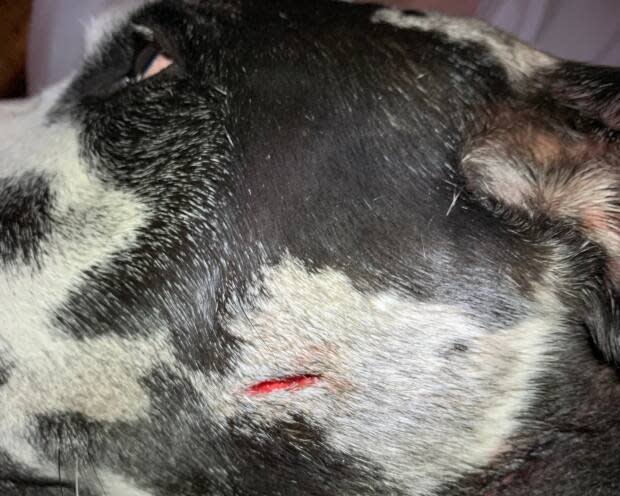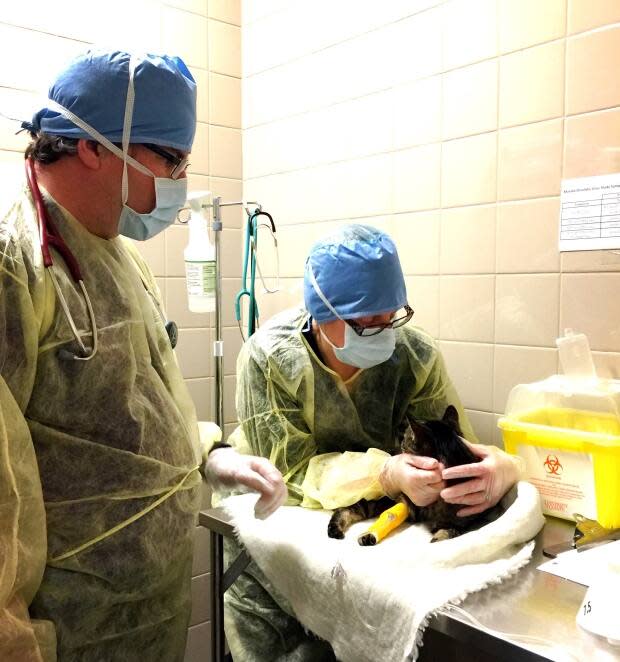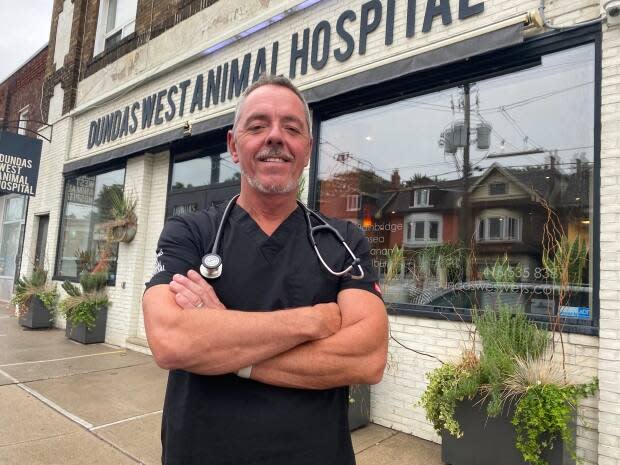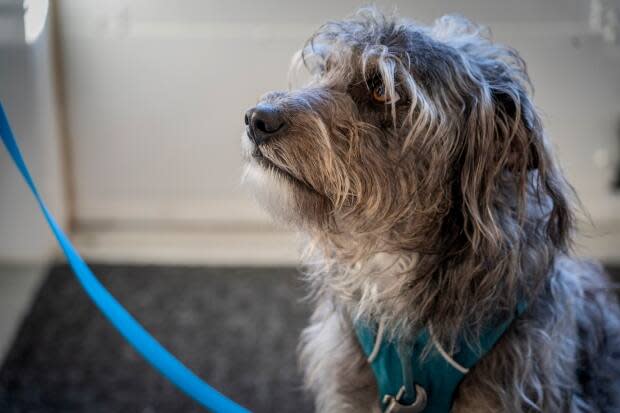Ontario pet owners struggling to find animal care amid shortage of vets

When one of Sarah Bennett's Great Danes suffered a minor injury while playing in the neighbourhood dog park last year, the vet told her it was nothing a few stitches wouldn't fix.
But nobody at the clinic was available to do it, so Bennett had to take care of the cut herself.
"That is something that I have been fit in for in years past," Bennett told CBC Toronto.
The clinic she has taken her dogs to for the past seven years also used to be open 24 hours a day, giving her peace of mind if something went wrong with her pets. But now, it's open just eight hours a day.
Stories like Bennett's are becoming increasingly common in Ontario Veterinarians and animal clinic owners in the province say they're dealing with staffing shortages partly because of rising demand due to the pandemic.

"We have seen a huge rise in pet ownership over the last few years, especially since the start of the pandemic when people found themselves at home and looking for comfort," said Dr. Matthew Richardson, president-elect of the Ontario Veterinary Medical Association.
"Just like human medicine, we are seeing veterinarians as front-line workers and they're experiencing higher than normal rates of burnout."
He says five years ago, it was possible to get your pet in for non-emergency care on the same day, or maybe the next. Now, he says, people are waiting longer. Even emergency clinics are having a hard time keeping up and rely on triaging cases.
"It can be a real challenge and a stressful experience," said Richardson.

Dr. Scott Bainbridge, a veterinarian and clinic owner, says he has first-hand experience when it comes to burnout.
"I walked in here this morning, two emergencies in the exam room in the back, both have oxygen, my vets are full on," Bainbridge said in an interview at Dundas West Animal Hospital, the clinic he co-owns in west-end Toronto.
"There is not an empty appointment in the clinic here today and I know we will all be trying to squeeze stuff in," he said.
Bainbridge says to book a general exam now, clients are waiting three to four weeks. He says he can no longer take on new patients because his workload is so heavy.

He says clinics are also struggling to retain staff and he believes the internet is playing a role in that.
"We are under the magnifying glass a lot. If you read some of the Google reviews for my colleagues, it can get pretty nasty out there," he said.
Veterinary schools need more students, vet says
There are five veterinary schools across Canada. In all, 350 veterinarians a year graduate from those institutions. Only one is in Ontario, graduating up to 120 students annually.
"That's probably not enough to keep up with it. We need to have more students graduating from vet school across Canada," said Richardson.
But he says increasing the amount of students admitted to veterinary colleges is not an immediate solution and pet owners can expect to see more care through telemedicine.
Bainbridge said the College of Veterinary Medicine should also be looking at people who have immigrated to Canada with previously work experience in veterinary medicine.
"We have tons of international vets dying for jobs in Canada right now and the restrictions for those to get their licence in Canada right now are ridiculous," he said.

"I really think they could ... make it easier for international vets to get a licence here and help with the problem."
The college says in the last year about 50 per cent of the 363 licences it gave out were to vets who are internationally trained.
It says it has created initiatives to make sure more veterinarians from other countries are able to work in this country, including a restrictive licence that allows someone to practise under the supervision of another veterinarian while preparing for exams.
The college says it's also trying to figure out a way to certify vets in a specific skill, instead of forcing all of them to have a general licence.
"We are currently and have been for several years looking at a variety of pathways to make sure the skill sets are well utilized," said Jan Robinson, the registrar and chief executive officer of the College of Veterinarians of Ontario.
"Do we have more work to do? The answer is yes. Are we on it? The answer is yes,"
Meantime, as the vet shortage in the province continues, Bennett has started a homemade first aid kit for her Great Danes.
The kit includes skin glue, as well as various bandages and salves for milder injuries she's previously been turned away for.
"It has to be actually catastrophic to get into the emergency vet. Otherwise, we are waiting four, five, six hours," she said.
"And that is sometimes troublesome."

